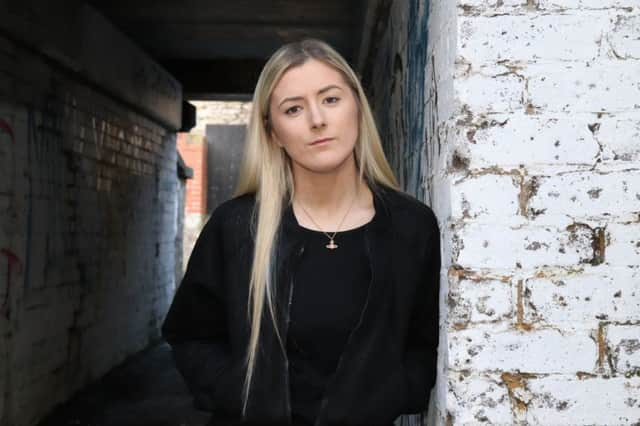Whorlton Hall exposé highlights crumbling social care system - Mike Padgham


It cannot be condoned and everyone in the care sector is, I am sure, committed to eradicating any form of abuse. What it also highlights is the need for reform of a system that is visibly crumbling. The economic plight of social care is not an excuse for poor or abusive care, but nor is it a help.
The majority of care remains good, professional and compassionate but it is being delivered against a backdrop of the worst crisis I can recall after almost 40 years of working in health and social care.
Advertisement
Hide AdAdvertisement
Hide AdWe know that we can improve and the majority of providers want to. At the same time, it must also be accepted that the Care Quality Commission isn’t perfect either and we need to take a look at its processes and procedures too, to ensure its inspection regime is focussing on the right priorities.
We look to the Government to take the lead in reform, but the domestic political agenda continues to be dominated by Brexit and party politics, at the exclusion of almost all else, including social care.
The only message from Government on social care is one of dampening down expectation rather than giving cause for optimism. Care Minister Caroline Dinenage has said the long-delayed Green Paper would not be “an immediate panacea” to the crisis in social care.
This is very disheartening as what we want to hear now is a note of optimism rather than the Minister almost killing off hope for progress this year. Above all, we need the Green Paper to be published so that we can begin what will doubtless be a lengthy debate on its contents and proposals before we see meaningful action.
Advertisement
Hide AdAdvertisement
Hide AdBack in April, MP Damian Green published his suggested reforms in the document Fixing the Care Crisis. This contained much that deserved consideration, not least the conclusion that the cost of delivering better care needs to be shared by all of us. If, as a country, we want the best social care, then we have to accept it has to be paid for and that means through taxation or National Insurance.
Ensuring that everyone gets a guaranteed level of care and ending the discrimination against dementia were also very sensible highlights in Mr Green’s proposals. However, the absence of any suggestions on how to deal with the social care staffing crisis – likely to be exacerbated by Brexit – was notable. We need to address staffing, not least by ensuring that freedom of movement for staff will be maintained, even after Brexit.
We have to hope that the rumour that the Government is to scrap the £30,000 minimum salary threshold for EU migrants proves to be true. It is high time that social care workers were recognised as skilled in any case, regardless of the salary they earn.
While we wait for meaningful action and the delayed and delayed Green Paper, the crisis in social care continues. Headlines were dominated by care home operator Four Seasons Healthcare going into administration and we have to remain hopeful that the care of its residents and future of its staff can be assured.
Advertisement
Hide AdAdvertisement
Hide AdMeanwhile, smaller operators continue to close as the sector suffers an ongoing ‘death by a thousand cuts’. Little surprise that Age UK reports that parts of the country are becoming social care deserts. A report for the charity looked at 7,500 post code districts in England and found that 30 per cent had no residential care beds and 62 per cent had no nursing home beds.
Earlier this year we heard the results of a survey by the Local Government Information Unit and the Municipal Journal, revealing that 29 per cent of councils who responded planned to reduce activity in adult social care. Some 37 per cent of councils named adult social care as their top, long-term financial pressure.
As I write this, county councils are warning that they are facing a tough future, with a funding black hole of more than £50bn over the next six years unless extra money is made available.
Little comfort then in all of these headlines, for the 1.4m people who currently aren’t receiving the care they need, the many thousands more who aren’t going to get it in the future and to those of us trying to provide that care.
Advertisement
Hide AdAdvertisement
Hide AdI have seldom known the prospects for the future to feel so bleak. Which is why the comments made by Caroline Dinenage over the Green Paper do beggar belief. I’m sure the Minister is a very honourable politician and that she has the best interests of the country at heart.
She has an opportunity to make a name for herself by delivering the social care Green Paper swiftly or falling on her sword in protest if it doesn’t appear soon.
Social care providers are ready, willing and able to work with the government and other partners to move the sector forward and improve the quality of care and make examples like Whorlton Hall a thing of the past. The Government knows where we are and only needs to ask.
The Independent Care Group will continue to fight for a fairer deal for social care and will remain optimistic that improvement is just around the corner.
Advertisement
Hide AdAdvertisement
Hide AdAt the very least we – and above all, those who need care to enjoy a decent quality of life, deserve to hear a message of hope from the Government. It’s going to be a very long year otherwise.
Mike Padgham is chair of the Independent Care Group based in Scarborough and a national campaigner on social care.